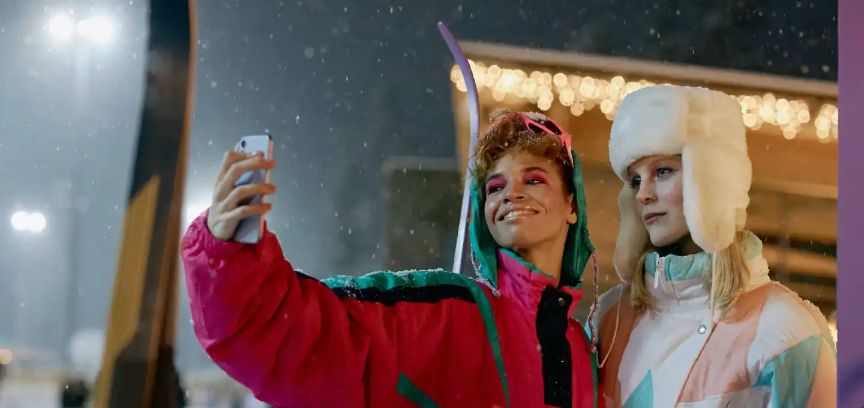Fashion Psychology: How Clothing Affects Your Behavior
3 min read
13 Apr 2024
Fashion is not just about looking good; it's a powerful form of self-expression and a means by which we communicate with the world. But did you know that clothing goes beyond aesthetics and can actually influence your behavior and emotions? This fascinating field of study, known as fashion psychology, explores the intricate relationship between what we wear and how we feel and behave. In this article, we'll delve into the impact of clothing on human behavior and the psychology behind it.
1. The Power of Clothing Choices:
Our clothing choices are not arbitrary; they are deliberate expressions of our personalities, moods, and intentions. The clothes we select send signals to others about our identity and how we want to be perceived.

2. Enclothed Cognition:
The concept of enclothed cognition explores how the symbolic meaning of clothing can affect cognitive processes. Research has shown that what you wear can influence your cognitive abilities and confidence levels. For example, wearing formal attire may lead to increased focus and attention to detail.
3. Self-Perception:
Clothing can shape your self-perception. When you dress in a way that aligns with your self-identity and values, it can boost self-confidence and reinforce positive self-perception. This, in turn, can influence your behavior and interactions with others.
4. Mood Enhancement:
Your clothing choices can have a direct impact on your mood. Wearing bright, cheerful colors or comfortable, cozy fabrics can lift your spirits and enhance your overall sense of well-being.
5. Role Play and Empowerment:
Fashion allows you to step into different roles and personas. Dressing for a specific role or occasion can empower you to embody the qualities and characteristics associated with that role, influencing your behavior accordingly.
6. Nonverbal Communication:
Clothing serves as a form of nonverbal communication. People often make assumptions about your personality, status, and values based on your attire. Wearing a suit may convey professionalism, while casual attire suggests a more relaxed approach.
7. Confidence Boost:
The phenomenon known as the clothing-confidence connection suggests that wearing clothing that makes you feel confident can actually boost your self-esteem and overall confidence levels. When you feel good in what you're wearing, it shows in your demeanor and interactions.
8. Social Influence:
Peer pressure and social norms play a significant role in clothing choices. People often conform to certain dress codes or styles to fit in or adhere to societal expectations, which can influence their behavior in group settings.
9. Cultural Significance:
Clothing carries cultural significance and can influence behavior based on cultural norms and traditions. Traditional attire can reinforce a connection to cultural heritage and promote adherence to cultural values.
10. Decision-Making:
Studies have shown that the way you dress can impact your decision-making process. When you feel more confident and put-together in your clothing choices, you may make more assertive decisions.
11. Empathy and Perception:
The clothing others wear can influence your perception of them and your level of empathy. People may be more likely to approach and interact with someone dressed in a friendly and approachable manner.
12. Emotional Expression:
Fashion is a means of emotional expression. When individuals use clothing to express their emotions or moods, it can impact their behavior and how they engage with others. For example, wearing bright colors when you're happy can spread positivity to those around you.
13. Dress for Success:
The saying dress for success holds true in many contexts. When individuals dress in a way that aligns with their goals and aspirations, it can motivate and empower them to achieve success.
14. Cognitive Dissonance:
Wearing clothing that contradicts your beliefs or values can create cognitive dissonance, leading to discomfort and potentially influencing your behavior as you seek to resolve this psychological tension.
15. Adaptation and Versatility:
Fashion psychology recognizes the power of adaptability in clothing choices. Individuals often select outfits that allow them to adapt to various situations and roles, demonstrating the versatility of fashion's influence on behavior.
Conclusion:
Fashion psychology sheds light on the intricate and dynamic relationship between clothing and human behavior. What you wear isn't just a matter of personal style; it's a form of communication, self-expression, and even mood enhancement. Understanding the psychological impact of clothing choices can empower you to make intentional decisions about what you wear, allowing you to harness the power of fashion to boost your confidence, enhance your mood, and shape your behavior in alignment with your goals and values. Fashion is not just about looking good; it's about feeling good and expressing yourself authentically through your attire, making it a fascinating and influential aspect of human psychology.



